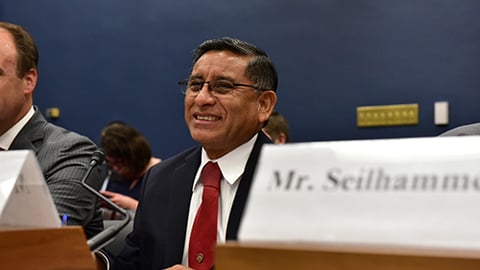NGA Pushes FTC, DOJ to Scrutinize Grocery Retail Mergers
The National Grocers Association (NGA), which represents the independent grocery industry has submitted comments to the Federal Trade Commission (FTC) and the Department of Justice (DOJ) encouraging the agency to curb anti-competitive practices arising from mergers of supermarket operators.
In its comments, Washington, D.C.-based NGA contended that merger deals must be challenged when the combined firm gains the ability to demand preferential terms and conditions from suppliers in a way that disadvantages competitors. The comments are in line with the the trade association’s stated goal of reining in dominant food retail “power buyers” that have amassed huge economic power as a result of growing consolidation in the retail grocery sector.
“In addition to lax enforcement of the Robinson-Patman Act, independent grocers are put at a disadvantage because dominant retailers have been allowed to consolidate with little consideration over how these transactions increase anticompetitive buyer power,” noted Chris Jones, NGA’s SVP of government relations and counsel. “NGA appreciates the opportunity to weigh in with antitrust enforcers about the need for a fresh approach towards merger enforcement policy.”
The comments were submitted as part of the FTC and DOJ’s process of seeking stakeholder input in revising guidelines for merger enforcement. NGA also contributed to the March 17 FTC/DOJ listening session focusing on the food and agriculture sectors, where association members Tom Charley, co-owner of Charley Family Shop N’ Save, in Greensburg, Pa., and Anthony Pena, owner of City Supermarkets, in Norwalk, Conn., spoke about how consolidation in the food retail marketplace has negatively affected their ability to compete.






